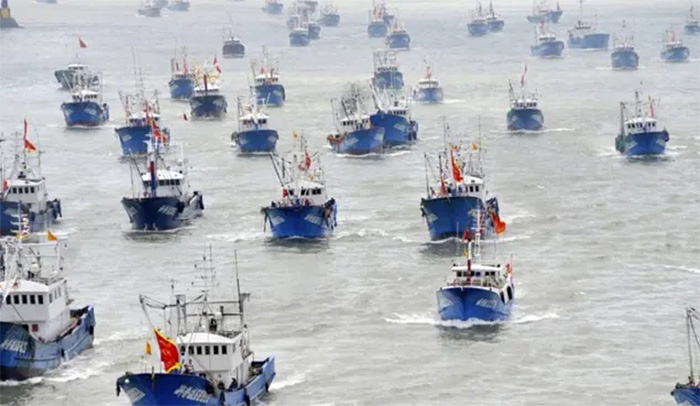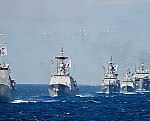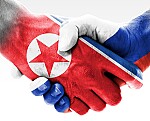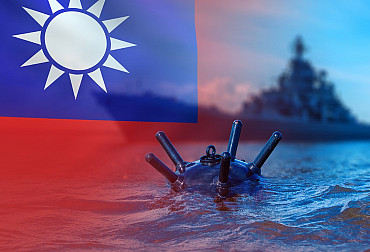Chinese actions in the South China Sea
People´s Republic of China (PRC) deploys its maritime militia in the South China Sea to support its territorial claims and as a tool for gray-zone warfare against other South China Sea claimants, particularly the Philippines. Recently, the Maritime Milita together with the China Coast Guard engaged in serious incidents at sea.
The Chinese Maritime Milita is part of China's People's Armed Forces, along with the People's Liberation Army and the People's Armed Police. Maritima Militia has a military organizational structure, although members of the militia are mostly civilians with ordinary jobs. It has two basic missions: to support the PLA against external threats and to support domestic security services in maintaining social stability. Despite the fact that the militia is not part of the PLA, it is under the local PLA command.

The main advantage of having a militarily organized civilian structure is plausible deniability. Although these forces are under strict PLA command, China could quickly say that it has nothing to do with unprofessional or even hazardous incidents. One of the well-known incidents in the South China Sea is the Scarborough Shoal Standoff in 2012 when the militia asked for help and then mobilized more vessels to seize Scarborough Shoal from the Philippines. Although there is little evidence of direct PLA involvement, it is likely that the PLA approved mobilization.
During recent months and weeks, the Chinese maritime militia has increased its actions and increased its presence in the South China Sea and especially around the reefs claimed by the PRC. For example, the Chinese maritime militia swarmed approximately 130 fishing boats around the Whitsun Reef in the internationally recognized exclusive economic zone of the Philippines. On 13 November, the Philippine Coast Guard detected 111 fishing boats in the vicinity of the Whitsun Reef.
Another incident occurred in the vicinity of the Second Thomas Shoal, where the Philippine Navy vessel Sierra Madre is located. Chinese Maritime Militia, in close cooperation with the Chinese Coast Guard, denied the resupply mission to Sierra Madre, damaged one Philippine ship with water cannons blast, and rammed another Philippine ship. The Chinese Maritime Milita, together with the Chinese Coast Guard, continue to harass Philippine ships in their own exclusive economic zones and deny the resupply missions to the Sierra Madre ship at the Second Thomas Shoal.
Incidents and harassment from Chinese side at Whitsun Reef, Scarborough Shoal, and Second Thomas Shoal are part of broader Chinese strategy in the South China Sea and part of territorial disputes in this important region. In 2014, the PRC started to build artificial parts of the Chinese-held reefs and shoals in the Spratly Islands. The construction was completed around 2018 and seven outposts became important bases for various means of Intelligence, Surveillance and Reconnaissance, logistic, communication, or offensive and defensive operations in the South China Sea.
The broader Chinese strategy in the South China Sea collides with other claimants - Vietnam, Philippines, Malaysia, and Taiwan. China-claimed reefs and shoals are located in the so-called nine-dash line, which encompasses approximately 90 % of the South China Sea. The main purpose and the main point of the Chinese strategy in the South China Sea is to create and inland sea controlled only by the PLA and other Chinese state organizations such as the Maritime Milita or the Chinese Coast Guard. The PLA Navy could deploy strategic submarines (SSBN) with nuclear-tipped intercontinental ballistic missiles capable of hitting the continental United States to the South China Sea after other PLA branches create the so-called bastion strategy. China could also pursue controlling the South China Sea due to its importance in global maritime trade, later controlling the flow of goods to Europe and elsewhere and exploiting this advantage in its foreign policy.
Chinese activities in the South China Sea form a challenge for the international community and should not be overlooked. Otherwise, it could have dire global consequences.










